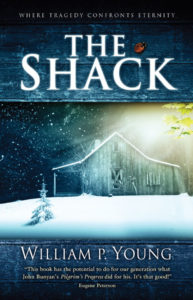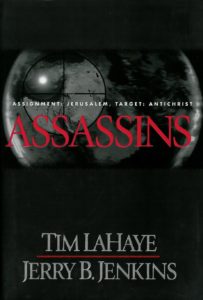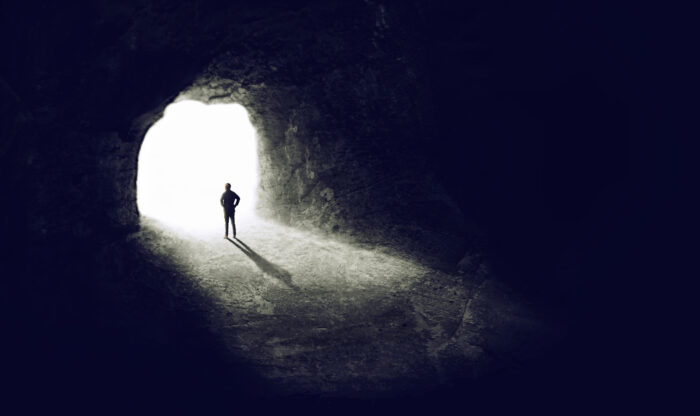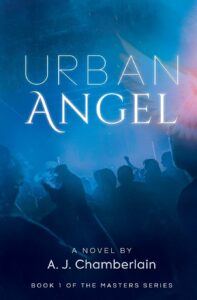69. How Can Faithful Stories Best Show Backslidden Heroes?
Podcast: Play in new window | Download (Duration: 54:37 — 51.3MB) | Embed
Christians talk a lot about “backsliding,” that is, doubts or struggles with our faith. Often the stories we share reflect characters who do the same. But how can Christian-made stories best explore this challenge, moving past cliches and shallow pictures of “backsliders” and showing more realistic images of people who fall back from faith but find restoration in Jesus?
Concession stand
- We’ve already talked about “deconstructing” (episode 10). This isn’t that.
- We’ll also tread lightly on the challenge of whether Christians can “fall away.”
- Some of this overlaps with tropey fiction evangelism, worth its own episode.
- We’ll critique some shallow backsliding narratives, hopefully in good faith.
- Our purpose is positive: to point to better fictional examples of backsliding.
1. How to backslide badly in a Christian(?) book
 First, we’ll consider a fictional example Stephen wrote in this older article.
First, we’ll consider a fictional example Stephen wrote in this older article.
Charis wanted to cry. Did Michael really mean it? Was he really saying there was a good God who loved everyone in the world — everyone, including her? But he could not mean that, she thought. After all, she was not important, beautiful, wealthy, or special. No one could love her after all the bad things she had done. Not even God.
- “Blind faith” is a safe trope, an evangelical version of “just believe in yourself.”
- It’s a pre-cleaned, saccharine version of the sufferings Christians do have.
- Not all backsliders have simple stories. “God loves you” doesn’t fix things.
Second, we’ll consider Mack from the preachy, kinda-Christian novel The Shack.
- The story tries to present tragedy honestly, but keeps Nerfing the horror.
- Three authors, one confusion: The Shack‘s fictional “trinity” is tropey.
- The shtick only works with bad assumptions about The Church Back Home.
2. If you’re going to become a backsliding book hero, do it right
 Rayford Steele in the Left Behind series is actually a great example.
Rayford Steele in the Left Behind series is actually a great example.
- Left Behind book 6, Assassins, brought Rayford to a crisis point.
- The story asked: Is it righteous to seek vengeance against the Antichrist?
- Book 7 then explored Rayford’s repentance and restoration by the Church.
Mary Magdalene’s character in The Chosen is another example.
Matthew: What if you were cut off from Jesus by something in your past?
Mary: He already fixed me once. I can’t face him.
Matthew: I’m a bad person, Mary. My whole life, all about me. No faith.
Mary: I do have faith in him, just not in me.
3. How can we grow in Christ thanks to backsliding characters?
- Scripture gives examples of struggling saints. Fiction gives us backup for this.
- If the backsliding is realistic, it can help cultivate our hearts _and_ heads.
- Even tropes can help us head off some of the sillier backsliding excuses.
Episode sponsors
Sponsor 1: Joshua David’s novel Seed: Judgment
Seed: Judgment, a science fantasy tale of biblical proportions from Joshua David is available now, exclusively on Amazon.
Seed falls from the heavens and judges humanity. One foretells of the coming calamity, but the words are heeded too late.
Few remain after the war against the cosmic demon. Long confined to one of the few outposts left on Earth, Sal accepts an unauthorized mission to find a survivor lost in the Vegas wastes.
He believes his target is special, imbued with a spirit that might finally turn the tide against the darkness. But to save her from the risen still haunting humanity, he’ll have to fight alone and outgunned against enemies that have already conquered the world.
“Joshua David’s Seed: Judgment marries The Thing, Resident Evil, and Mad Max to generate a post-apocalyptic tale of frenetic intensity. … There’s a beauty to the brutality, a dance in the destruction.”
Sponsor 2: A. J. Chamberlain’s novel Urban Angel
Urban Angel is a story of courage, redemption, and spiritual warfare, set in contemporary London.
One day the church will be made perfect, but for now she bears the scars of war. Alex Masters knows all about that war. For her the journey to faith has been marked by grief and loneliness, but still she chooses to believe.
Daisy is a child of the social media generation, lost in every belief and none. When tragedy strikes, she seeks out her cousin Alex because she knows that Alex understands what it is to face the darkness.
They come together, believer and unbeliever, hunted by an enemy that will do whatever it takes to achieve its goal. Alone, Alex and Daisy would be defenseless, but this is not a struggle against flesh and blood, and not every weapon is visible.
Urban Angel launches in ebook and paperback format on July 1 and is available from all the major ebook platforms and your local bookshop. Urban Angel is the first book in the Masters Series.
Urban Angel is distinctly different [from] standard Christian fiction; it doesn’t shy away from the tough issues faced by Christians, it’s gutsy, frank, and relevant.
—reviewer
Sponsor 3: Revell Books, Jody Hedlund’s Come Back to Me
The ultimate cure that could heal any disease? Crazy.
That’s exactly what research scientist Marian Creighton has always believed about her father’s quest, even if it does stem from a desire to save her sister from the genetic disease that stole their mother from them. But when her father falls into a coma after drinking a vial of holy water believed to contain traces of residue from the Tree of Life, Marian must question all of her assumptions. He’s left behind tantalizing clues that suggest he’s crossed back in time. Insane. Until Marian tests his theories and finds herself in the Middle Ages during a dangerous peasant uprising.
William Durham, a valiant knight, comes to Marian’s rescue and offers her protection . . . as his wife. The longer Marian stays in the past, the more she cares about William. Can she ever find her father and make it back to the present to heal her sister? And when the time comes to leave, will she want to?
“Brimming with wonder, Come Back to Me will keep you riveted until the last page, captivated by the possibilities.”
—Melanie Dobson, award-winning author
Com station
Stephany A. wrote about episode 67, with guest L. G. McCary:
I just finished listening to your podcast episode How Do Fantastic Stories Avoid Preachiness… I had to write immediately because it felt like listening to myself. I grew up on Frank Peretti, C. S. Lewis, Ted Dekker, the speculative greats.
The Visitation is a great book. I was a big fan of The Oath and The Cooper Kids series. I very much love speculative fiction. The fantastical element. But I agree wholeheartedly, we need to tell stories without preachiness and campiness. We have the ultimate storyteller inside of us so our stories should be compelling and full of truth without beating people over the head.
Next on Fantastical Truth
What if you grew up learning Scripture memory and biblical virtue from a Christian-made tabletop game system? Then you discovered that game had been “cancelled” by an irritated televangelist in the 1980s? That’s a decent setup for a fan-friendly contemporary novel, but in fact, it’s a true story, and now suspense and fantasy novelist James R. Hannibal, owner of the game known as DragonRaid, will share the story of dice-rolling, death, and rebirth.































Wait, why not do some deconstruction? I guess not everyone ate and breathed it for two years of upper coursework, but I think of it as akin to examining your assumptions, which is a good thing for everyone to do.
In short: Because we already deconstructed deconstruction (the Jesus-rejecting kind) back in episode 10.
O ye of small ambitions, that doesn’t mean we can’t still deconstruct some more!
I went back and listened here and there, and it doesn’t seem like you do much deconstruction, just picking at other people’s arguments. Which is also a favorite hobby of mine, but not quite deconstruction. You did question the other people’s assumptions, but you didn’t question the assumptions made by society/culture/subculture (or reflect on how that influences your own assumptions).
Fair enough. Our point was not to deconstruct deconstruction, but to challenge this notion in a way we haven’t heard done before: asking what imaginative assumptions the “deconstruction” folks are making, to which they seem completely un-self-aware.